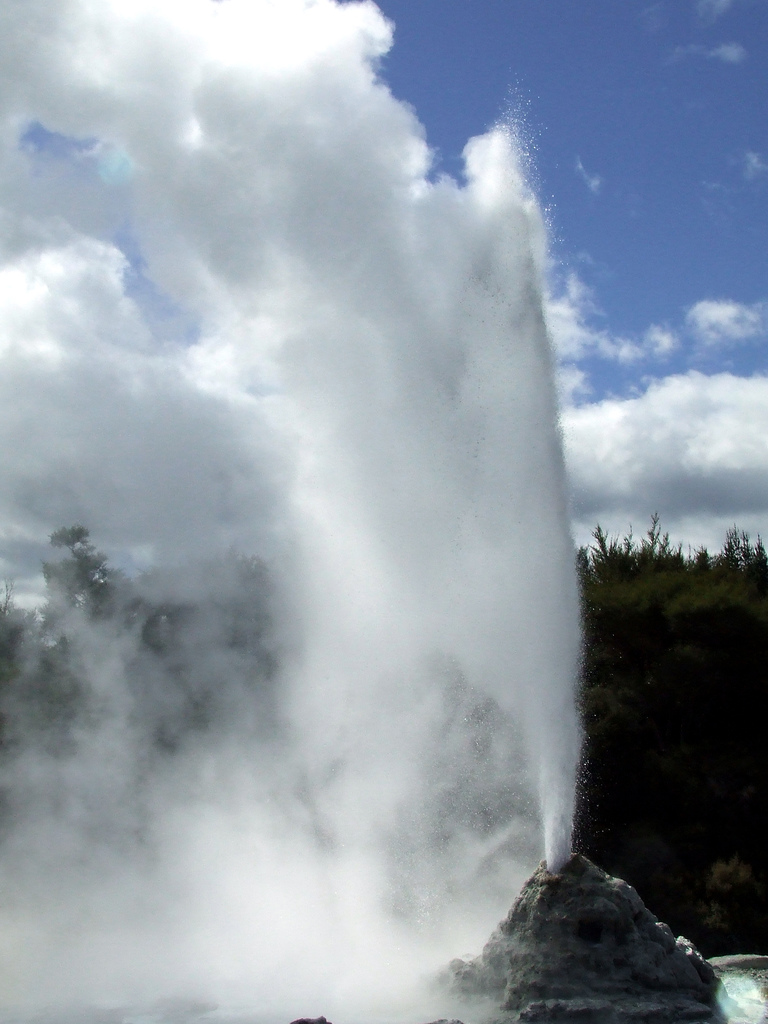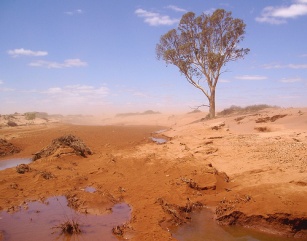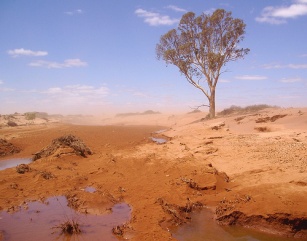Despite its economic woes, The Los Angeles Times still employs some of the best environmental reporters in the business, including a personal favorite, Julie Cart, who always brings compassion (and great quotes) to her work. Her story about how climate change is devastating Australia ran this week on the front page and it’s absolutely first rate.
“What Will Global Warming Look Like? Scientists Point to Australia” is the headline in the online edition, but although the story references the science, it hits home with quotes from ordinary folk — farmers, suburbanites, shocked patriarchs — talking about non-climactic matters such as depression, despair, and suicide. One stout farmer named Frank Eddy told her:
“Suicide is high. Depression is huge. Families are breaking up. It’s devastation,” he said, shaking his head. “I’ve got a neighbor in terrible trouble. Found him in the paddock, sitting in his [truck], crying his eyes out. Grown men — big, strong grown men. We’re holding on by the skin of our teeth. It’s desperate times.”
A result of climate change?
“You’d have to have your head in the bloody sand to think otherwise,” Eddy said.
Without being heavy-handed about it, the story also brings up an irony about global warming still unknown to most Americans, and quite beyond the mental capacity of deniers. As Kevin Trenberth, a leading scientist for the National Center for Atmospheric Research puts it: “The wets will get wetter, and the dries will get drier.” The story also mentions that Australia, a big coal user and exporter, and the highest per capita producer of greenhouse gases in the world, happens to be one of the first industrialized nations to be devastated by climate change.
But the U.S. has no right to be complacent. Although it has not reduced its coal consumption or exports, Australia is making changes … as Keith Schneider pointed out recently for Yale’s Environment 360 site.
Concerned that steadily rising temperatures in south Australia and the recent drought signal a permanent climate shift, a majority of the country’s states have taken the unprecedented step of agreeing to let the central government play the dominant role in managing local water resources. Growing fears of a lasting change in climate patterns has helped generate support for major public works projects to deal with water scarcity. Australia’s 2007 national election, which saw the Progressive Party come to power, was the first national election in the country’s history in which a scientific issue — climate change — played a decisive role.
“It’s testing our people,” said John Williams, the former chief of Land and Water for the Commonwealth Scientific and Industrial Research Organisation (CSIRO), the country’s premier scientific agency. “These new conditions are forcing people to move out of industries. There are many people making decisions to change radically the nature of their business. There are some industries — rice growing, cotton production — that are just failing and falling away.”
The American Southwest has yet to face these same climatic facts.
In California, for example, no substantial changes have been made in state-wide water distribution in recent years. An excellent report at the end of 2008 put out by a blue ribbon task force commissioned by the Governor has been ignored, even though nearly everyone agrees the system is in crisis, and even though the state is facing a third year of drought.





